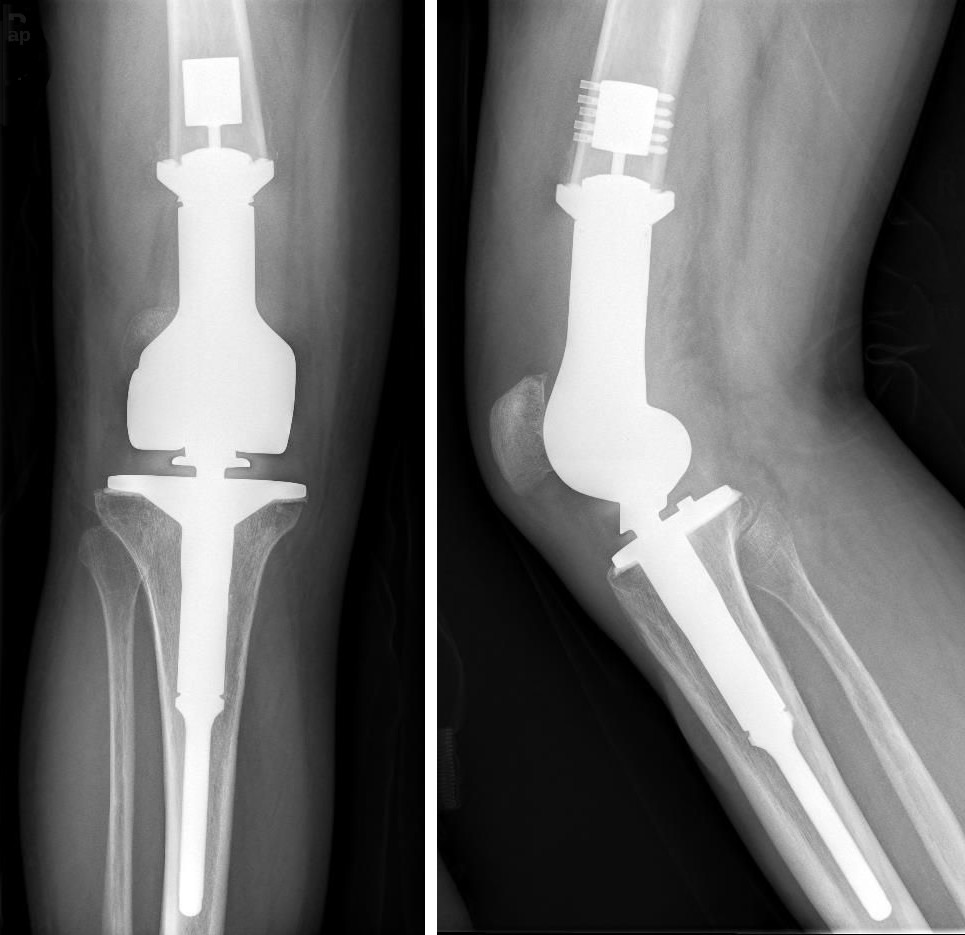
Outpatient Total Joint Replacement
In the early days of orthopedic surgery, patients could expect to spend months in the hospital recovering after joint replacement. But continual advances have reduced the recovery time drastically. 20 years ago, it was five days. Ten years ago, it was down to two to three days. Today, patients have the choice to get the procedure in a hospital setting or on an outpatient basis, which provides a same-day discharge.
What is outpatient joint replacement?
Outpatient total joint replacement is performed in a clinical environment rather than in the hospital. And patients go home the same day. There are many reasons for this.
Better pain control
- Epidural injections numb the hip or knee area for replacement procedures.
- Shoulder replacement surgery can be done with brachial plexus injections.
- Local anesthetics offer longer-lasting pain relief and reduce the need for opioid medications.
Additionally, multimodal pain control involving the use of several medications such as acetaminophen, or NSAIDs such as iboprofen, reduce or eliminate the need for narcotics and opioids. This results in safer pain control so patients can recover safely at home.
Advanced surgical techniques
These advances have shortened surgical procedures drastically and reduced blood loss. They can also be less invasive and therefore less traumatic for the patient. Additionally, medications such as tranexamic acid (TXA) further reduce blood loss and make transfusions less necessary after total joint replacement surgery.
Advanced pre-operative safety and patient selection
The surgeons at the Orthopedic Performance Institute apply advanced pre-screening techniques to identify the patients that are eligible for outpatient surgery, and which patients should stay overnight at a hospital after surgery. Eligibility is based on these factors:
- Age
- Pre-existing health conditions (heart disease, lung disease, kidney disease, etc.)
- Home environment and safety
- Support from family
More immediate physical therapy and occupational therapy
Gone are the weeks spent waiting for patients to heal. It’s been proven that getting a patient out of bed and walking the same day of surgery — even a few hours later — results in faster recovery time with fewer complications
Where is outpatient surgery performed?
There are two types of facilities utilized for the procedure:
- Hospital operating rooms. Historically, most total joint replacements have been performed in the hospital environment.
- Ambulatory (outpatient) surgery centers. Some of these centers are found in hospitals but function independently. Others are free-standing, occupying buildings of their own.
Surgeons Matthew Dwyer, MD and Christopher Phelps, MD, of the Orthopedic Performance Institute utilize both environments, depending upon patient needs, insurance coverage, or availability. Either way, patients can rest assured that they’ll be treated with the same level of skill and receive excellent care in either environment.
Ambulatory surgery centers provide:
- Pre-op areas to prepare patients for surgery
- Operating rooms where surgery is performed
- Post-surgery recovery areas
When a patient is fully recovered from the anesthesia, they are picked up by a friend or family member and driven home that same day.
Is outpatient total joint replacement surgery safe?
Again, studies show that it’s safer than staying in the hospital and patients have reported higher satisfaction rates.
What risks are involved?
We will prescreen you to determine which environment is safer for you. As mentioned above, if your health is compromised (i.e., heart, lung and kidney disease), then hospitalization may be recommended.
What are the benefits of outpatient total joint replacement?
- Reduced pain
- Lower infection rates, which means a lower risk of needing additional surgery
- Quicker recovery in the comfort of your own home
- Faster mobility with less time spent in bed, helping to reduce blood clots, urinary tract infections and pneumonia
- Increased satisfaction with the joint replacement process
What do I need to do to prepare for the procedure?
As they do with their traditional in-hospital surgical procedure preparations, the staff at the Orthopedic Performance Institute will provide a pre-surgery class to tell you what to expect and answer your questions. They’ll also recommend the pre-surgery exercises you should perform.
Stop living with pain! Find out if you are a candidate for outpatient total joint replacement surgery. Contact the Orthopedic Performance Institute at (210) 545-7171.

 Previous Post
Previous Post Next Post
Next Post




